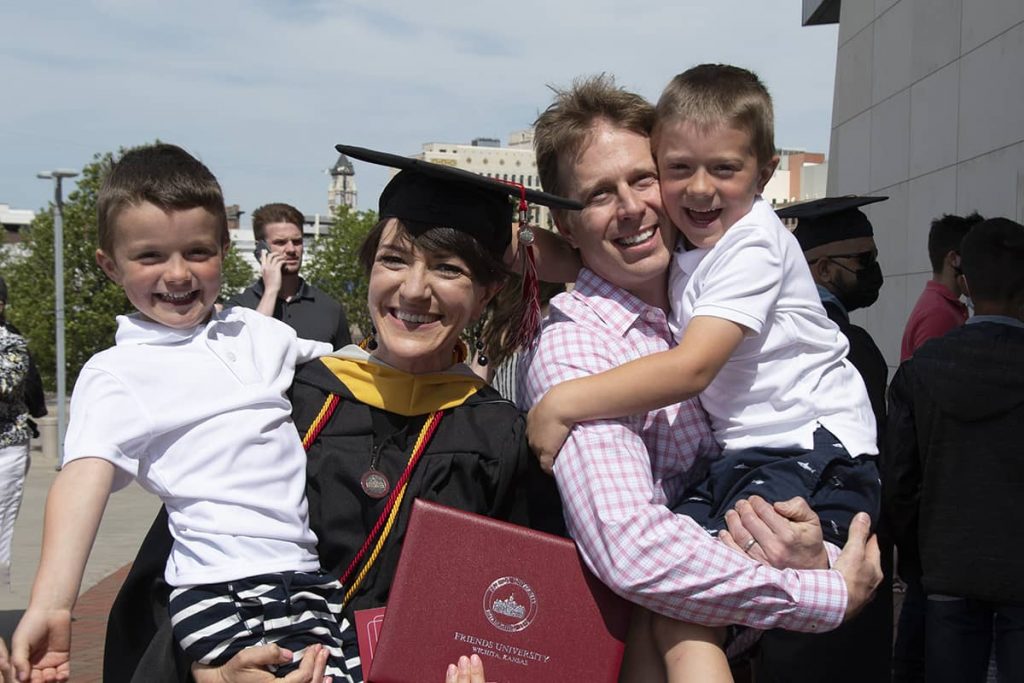Whether you’re returning to college after a break or transferring from another institution, knowing how your previous credits will apply is an important part of your journey. At Friends University, we’re committed to helping transfer students make the most of the work they’ve already completed—saving time, reducing costs, and building on a solid academic foundation.
Here’s what you need to know about transferring credits and completing your degree with confidence.
How Transfer Credits Work at Friends University
Friends University accepts credits from regionally accredited U.S. colleges and recognized international institutions. Once you apply and provide your official transcripts, our Academic Dean and departmental faculty will carefully review your coursework to determine how each class fits into your degree plan.
How to Submit Transcripts:
Ask your previous colleges to send official transcripts directly to Friends—either by secure PDF or traditional mail. We’ll take it from there!
What Grades and Credits Can Be Transferred?
In general, passing grades (typically “C” or higher) can be transferred for credit. While a grade of “D” might be accepted in some situations, it won’t count toward major, minor, or core requirements in most cases.
Note: Some courses may transfer in for credit but not apply toward your program requirements. Your Academic Success Coach will help you make sense of which credits count and which may need to be retaken or supplemented.
Credit Limits You Should Know
To ensure your degree from Friends University reflects a blend of new learning and previous experience, there are some credit limits:
- Community Colleges: Up to 69 credit hours may apply to most bachelor’s degrees. For students in the Bachelor of General Studies program, that limit extends to 90 credit hours.
- Activity Courses: You can apply up to 8 credit hours of physical activity or athletics coursework.
- Internships and Practicums: Up to 12 credit hours of hands-on experiential learning can be transferred.
- Remedial Courses: These do not count toward your degree or transfer GPA.
Special Considerations for Associate and Bachelor’s Degree Holders
Your previous degrees can streamline your path at Friends:
- Already Have a Bachelor’s Degree?You’re exempt from general education requirements but must still meet your major’s course requirements and complete at least 30 credit hours at Friends (the residency requirement).
- Have an Associate of Arts or Science from a Kansas College?You may be waived from most general education requirements, except for General Education Outcomes 7 and 8. You’ll still need to complete 124 total credit hours and meet the residency requirement.
Learn more about transfer-friendly degree programs.
Avoiding Duplicate Credit
Friends University does not grant credit for duplicated courses—whether taken at the same institution or across multiple schools. If you repeated a class, the most recent grade will be the one applied.
Ready to Transfer? Here’s What to Do Next
Every transfer student’s story is unique—and we’re here to help you write the next chapter. Contact the Admissions Office for a personalized transcript evaluation. We’ll walk you through each step, from submitting transcripts to understanding how your credits apply to your new degree.
Transferring doesn’t have to be complicated. At Friends University, we’re here to make your path forward as clear—and rewarding—as possible.
Start your transfer journey today.
